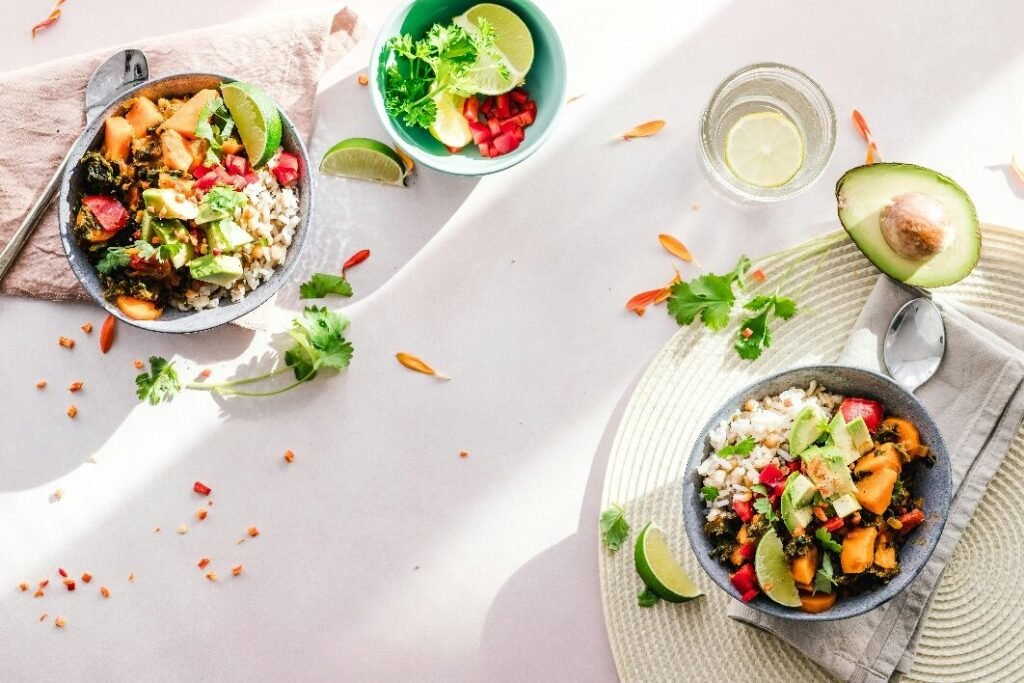From Plate to Face: The Impact of Nutrition on Skin Health

Are you aware that many of us focus on topical treatments and skincare routines to achieve healthy, glowing skin? However, the foundation of beautiful skin often lies in what we put on our plates. The connection between diet and skin health is profound, with certain foods having the power to enhance your complexion while others can lead to breakouts, dullness, and premature aging.
Our diet and skin health are related because nutrients or the lack of them affect the skin’s structure, function, and general look.
Since our skin is the greatest organ in our body, it provides a window into our general state of health. The meals we eat on a regular basis are therefore crucial in providing our skin with internal nourishment. Diet has been shown to be an important factor in skin health, however, there are many other aspects as well. Nutritious diets provide the building blocks needed to prevent irritation, preserve skin tenderness, and slow the aging process.

This blog post examines the credible link between diet and skin health, revealing how specific foods, nutrients, and dietary habits affect the skin. We’ll then learn how a nutritious, well-balanced diet can help treat a variety of skin issues, reduce inflammation, and encourage a glowing complexion. Additionally, we’ll go over how particular dietary groups—like fruits, veggies, and healthy fats—help to maintain the best possible health of our skin while also pointing out foods that may negatively impact it.
Here’s a breakdown of some key dietary factors that can impact your skin:
- Inflammation:
One factor that links food and skin health is inflammation. Skin disorders including psoriasis, eczema, and acne can be made worse by diets that cause inflammation, such as processed meals and sugar. Conversely, anti-inflammatory foods including fruits, vegetables, and whole grains can help calm your skin and lower your chance of developing inflammation-related problems.
- Health of the Gut:
You may be surprised to learn how closely your skin and gut are related. Skin issues can result from an unhealthy gut because an unbalanced gut microbiota can interfere with your skin’s natural defenses and cause inflammation. Consuming foods high in probiotics, such as yogurt, kefir, and fermented foods, can help maintain intestinal health, which promotes healthier skin.
Skin-Loving Foods for a Radiant Complexion

- Healthy Fats
The natural oil barrier of your skin is maintained and vital moisture is supplied by healthy fats like those in avocados, nuts, seeds, and fatty fish. Additionally, these meals include a good amount of vitamin E, which shields the skin from free radical damage and supports healthy skin in general.
- Vitamin-rich foods
Antioxidant-rich foods like berries, dark leafy greens, and colorful vegetables can neutralize free radicals, preventing damage to your skin cells. These powerful compounds also help protect your skin from environmental stressors and promote a youthful glow.
- Hydration

Drinking plenty of water is essential for keeping skin healthy. Water keeps the skin supple, promotes healthy cell turnover, and helps in the removal of pollutants. Watermelon, oranges, cucumbers, and other hydrating fruits and vegetables can make a substantial contribution to your daily fluid consumption.
Dry, flaky skin that highlights wrinkles and fine lines can result from dehydration. For this reason, staying hydrated throughout the day is crucial to getting the desired glow.
Foods to Avoid for Healthier Skin
- Refined Sugars
Consuming too much sugar can cause glycation and inflammation, which weaken collagen and elastin and cause wrinkles and drooping skin. Limit sugar-filled beverages, processed foods, and sweets to keep your skin looking young and healthy.
- Alcohol and Caffeine
Drinking too much alcohol and coffee can dry the skin, making it appear dreary and lifeless. Both drugs have the potential to disrupt sleep, which is essential for skin renewal and repair.
The secret is moderation! If you like a glass of wine in the evening or coffee in the morning, make sure to balance it with lots of water throughout the day.
- Processed Foods
Foods that have undergone extensive processing frequently include sugar, bad fats, and chemicals that increase inflammation and worsen skin conditions. For a clearer, healthier complexion, choose complete, unprocessed foods instead.
Practical Tips for Healthy Skin Through Diet
- Diversify Your Plate: Aim for a colorful plate filled with various fruits and vegetables to ensure you’re getting a wide range of nutrients essential for skin health.
- Incorporate Healthy Fats: Include sources of omega-3 fatty acids like fatty fish or flaxseeds in your diet to keep your skin hydrated.
- Stay Hydrated: Drink plenty of water throughout the day along with hydrating foods like cucumbers and watermelon.
- Limit Sugar Intake: Reduce consumption of sugary snacks and refined carbs that could trigger breakouts.
- Monitor Dairy Consumption: Pay attention to how dairy affects your skin; consider alternatives if you notice negative effects.
- Embrace Fermented Foods: Incorporate probiotic-rich foods into your diet to support gut health.

Never forget that your diet is the first step in having clear, glowing skin. You can promote the health of your skin and keep it looking young by eating wisely and including foods that are good for your skin in your meals. Never forget that inner beauty begins on the outside.

